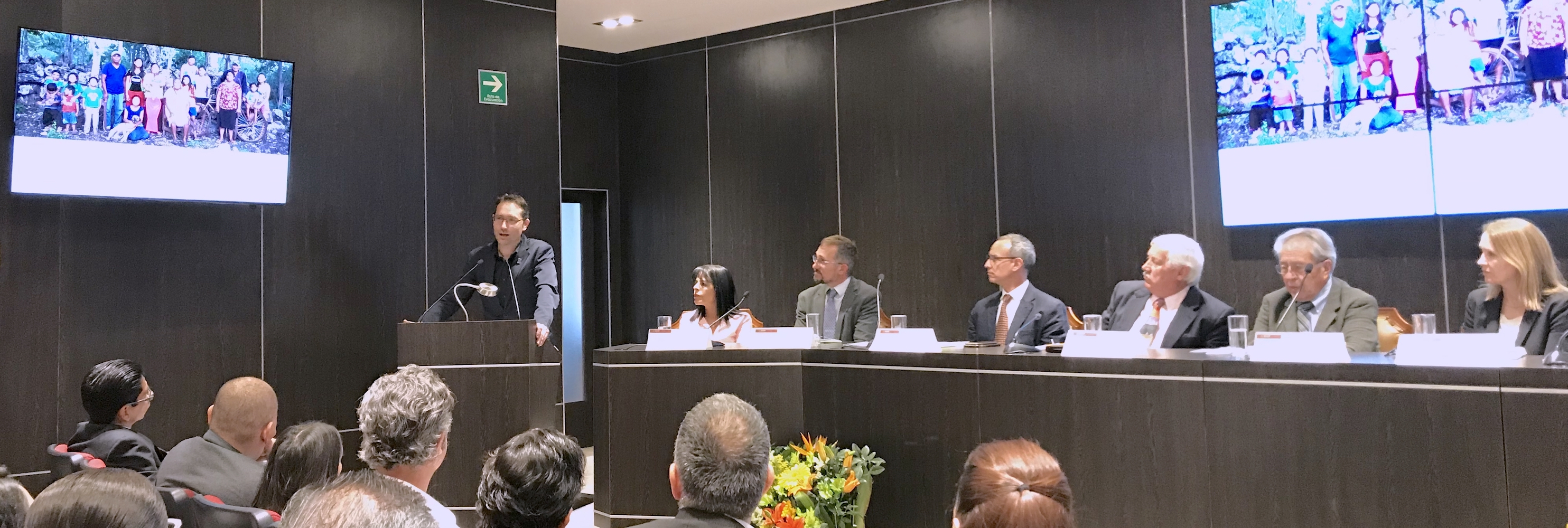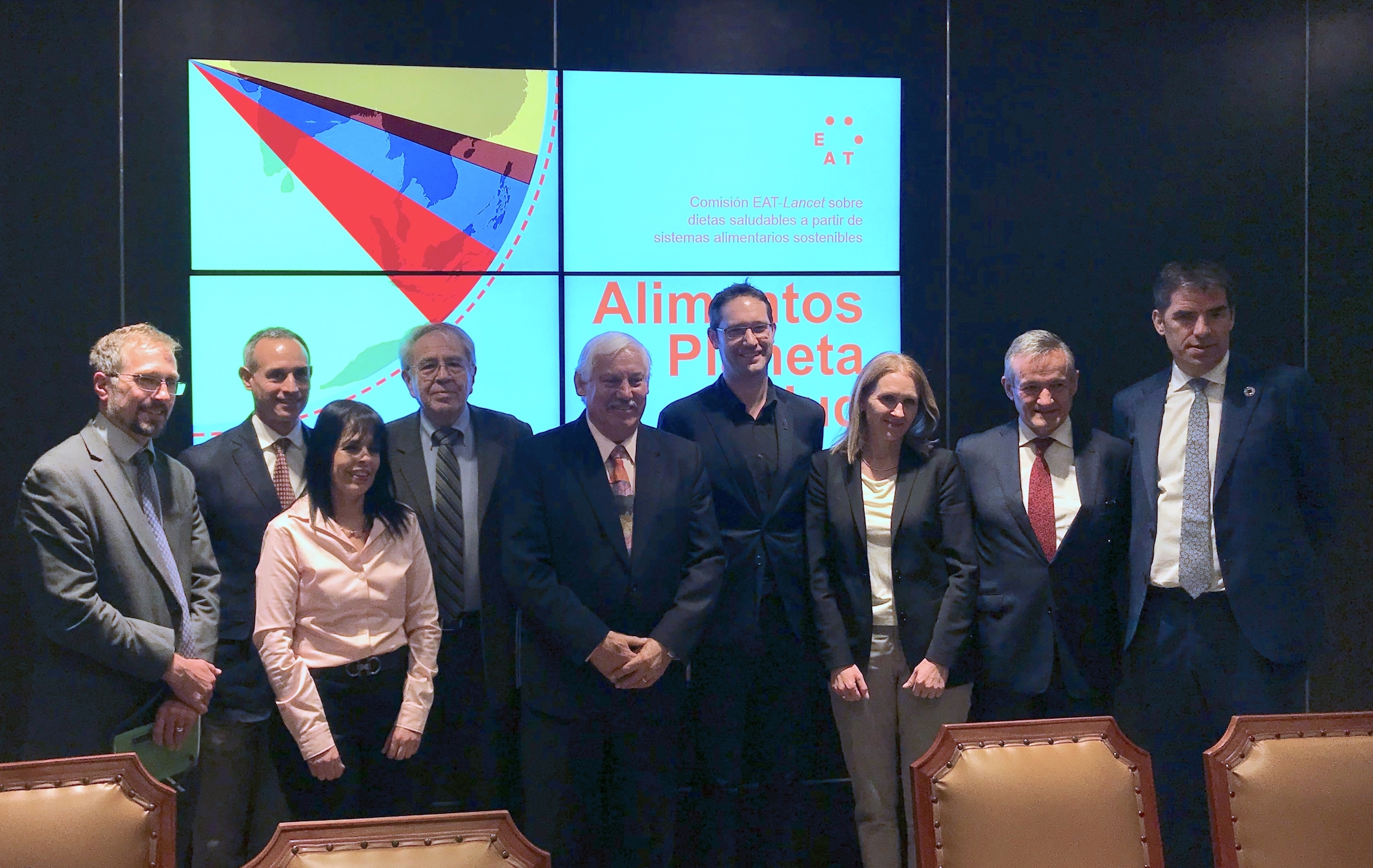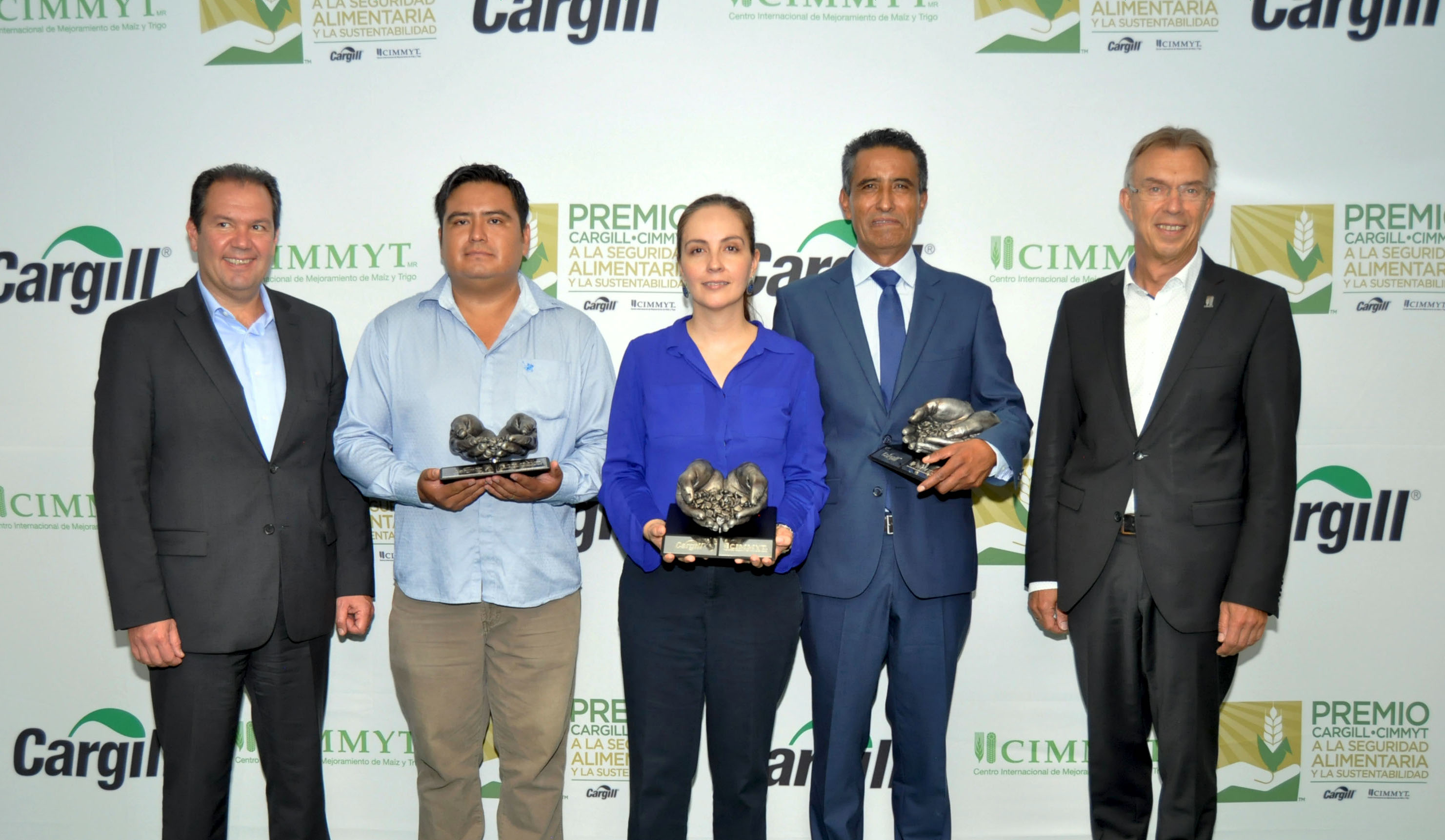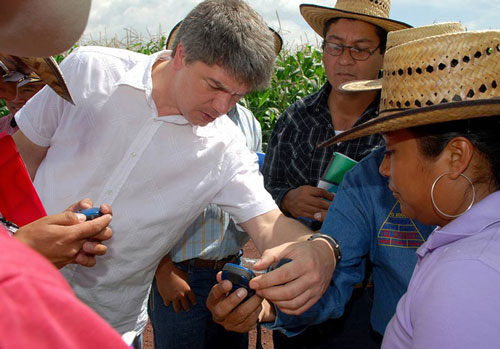
MEXICO CITY (CIMMYT) — The International Maize and Wheat Improvement Center (CIMMYT) was invited to discuss the findings of the EAT-Lancet Commission report and its implications for Mexico, during a launch event hosted by Mexico’s Health Department on March 4, 2019.
The report, published earlier this year, aims to offer an in-depth scientific analysis of the world’s food production systems and their impact on the planet and human health. It proposes a “planetary health diet” that balances nutrition with sustainable food production.
“Our first objective was to develop healthy diets for the 10 billion people who will inhabit the planet in 2050”, said Juan Ángel Rivera Dommarco, Director General of Mexico’s Public Health Institute and member of the EAT-Lancet Commission. According to Dommarco, the healthy diet recommended for Mexico had to increase the intake of fruits, vegetables, legumes and whole grains to avert chronic diseases and combat malnutrition and obesity.
The report also makes several recommendations to reduce the environmental impact of food production, taking into account planetary boundaries. “The world needs to sustainably intensify food production and to produce basic foodstuffs of higher nutritional value”, said Fabrice DeClerck, EAT’s Science Director.
“If anybody is able to manage the complex systems that will sustainably yield the volume of nutritious food that the world needs, that’s the farmer”, said Bram Govaerts, Director of Innovative Business Strategies at CIMMYT. “In Mexico, more than 500 thousand farmers already innovate every day and grow maize, wheat and related crops under sustainable intensification practices that CIMMYT and Mexico’s Agriculture Department promote with MasAgro”.
Víctor Villalobos Arámbula, Mexico’s Secretary of Agriculture, said that the EAT-Lancet Commission report recommendations were very much in line with the strategic public policies that Mexico plans to implement in the coming years.


 Nutrition, health and food security
Nutrition, health and food security 

